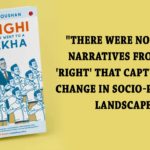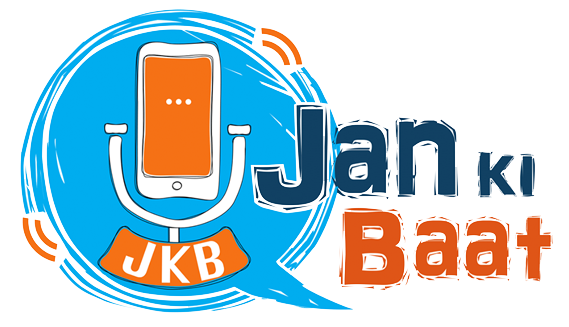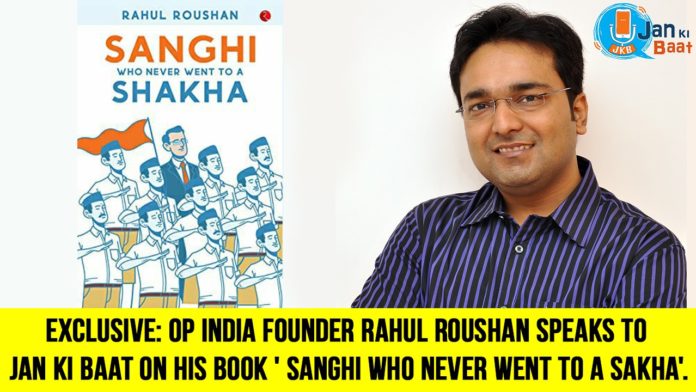In an exclusive interview with Debarghya Banerjee of Jan Ki Baat, Founder & CEO of OPIndia news portal Rahul Roushan talks about his book ‘ Sanghi Who Never Went to A Sakha’ which has been receiving plaudits for its hard hitting stance on contemporary politics & why it’s also an autobiographical take for him.
Que ) I was reading this book and I felt somewhere that this was also an autobiographical take on the transiton of a person from Liberal to a Sanghi. Would you agree that this is an autobionraphical take?
Ans ) Yes, it’s writen like an autobiography, but it’s not exactly an autobiography. It’s writen in first person narrative to explain and analyse the change India has gone through recently. My story happens to be a tool to understand this change, and my story is not important. In fact, bulk of the book is analysis of public events and issues, not recounting of my own life’s events. So it would be inaccurate to call it autobiography, but yes, it’s an autobiographical take on understanding the sociopolitical changes taking place in India.

Ques ) In the beginning of the book you do mention about how you started FAKING NEWS, and how it got its fair share of ethical cynicism when people called started calling you a SANGHI or a MODI LOVER. Was there an apprehension with the way you were understood since FAKING NEWS only came as a politcal satire?
Ans ) Initially there were indeed such apprehensions and I’d be honest about it. I feared it will impact the business I was heading (Faking News, the news satire website) and my own professional career, and also, I didn’t like those labels of ‘Modi lover’ or ‘Sanghi’ etc. as I saw myself as Libertarian. But as I explain in the book, I realized that putting labels on people was one of the tools of the Left to win wars of narrative. So I stopped bothering about that after a while. I knew that professionally it will hurt me if I allow such labels on myself and my career in the mainstream media will be fnished, but I made that conscious decision. The reasons are explained in the book.
Ques ) How’d you rate the internet in your growth as the voice of a silent majority & how was the change achieved?
Ans) Yes, rate in adoption of internet connectivity did help this process and I actually point it out in my book how, coincidentally, or not, narratives around media and politics shift in India when there was a sudden rise in rate of internet connectivity on two occasions.
This change was achieved by the fact that internet allowed new platorms of publishing and distribution that were not under control of the same set of people who had mafia like control on traditional platorms of publishing and distributions i.e. newspapers and mainstream media. This helped people discover and appreciate other narratiies that were heavily censored, suppressed and maligned earlier. Pro-Hindu narrative was one such narrative that found wider audience.
That’s why now we see that the same kind of people are now atempting to censor new platorms like Twiter, Facebook, Instagram, YouTube, etc. and they have been successful to a large extent. The same kind of censorship and gate-keeping of information is being brought back in the name of fighting ‘hate speech’ and for creating ‘safe spaces’.

Ques) Do you respond to all the comments you receive? How important is ‘credible feedback’ to a book?
Ans) No, I don’t respond to all, especially on social media, but I do read most of them and respond when I can. Feedback obviously is very important and it depends upon one person to another how they deal with feedback. Having been active on social media, especially Twiter, or literally over a decade now, I think it has equipped me to deal with all kinds of feedback, including negative, abusive, and destructive. Constructive feedback is what I look or and try to incorporate them to do things in a better way.

